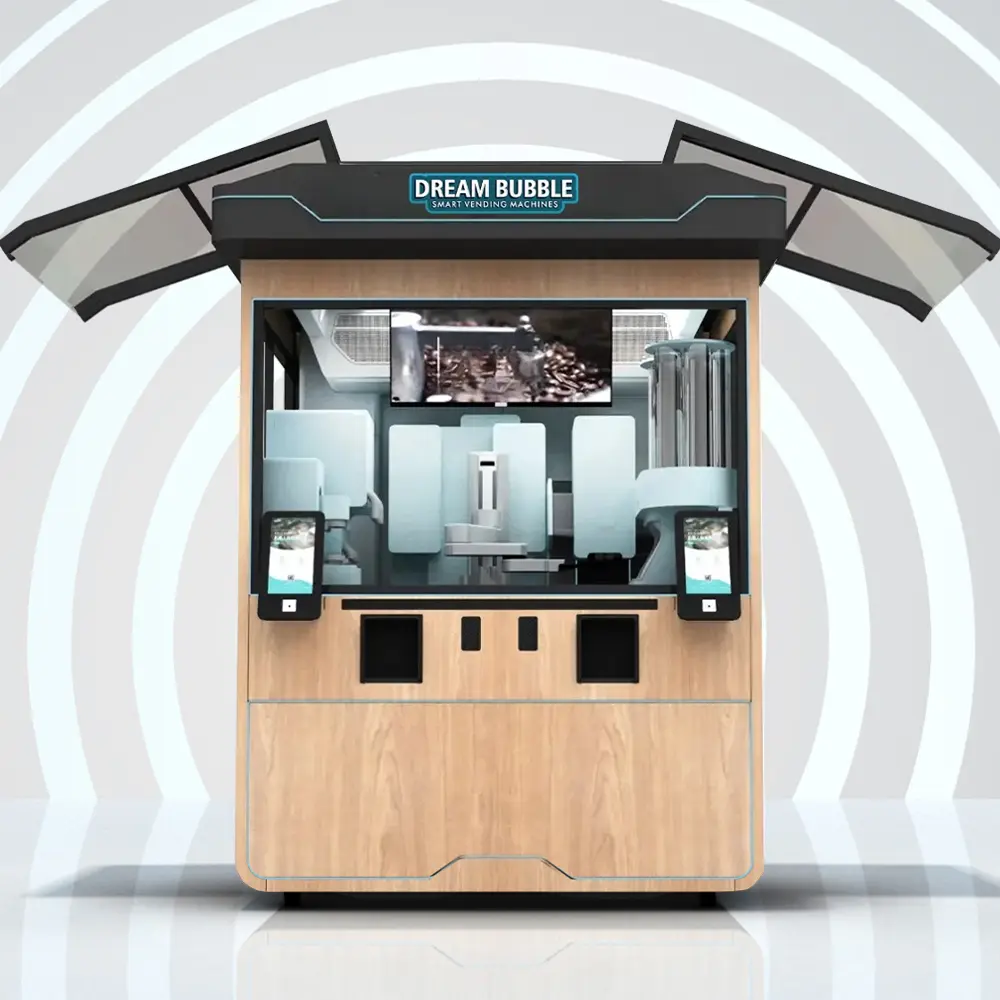When it comes to vending machines, especially those serving food and beverages, hygiene is a top priority. With the rise of robotic coffee machines, maintaining cleanliness and operational efficiency has never been easier. These machines come equipped with self-cleaning systems, reducing the need for constant human oversight and minimizing the risk of contamination. At the same time, they streamline the coffee-making process, ensuring that each cup is brewed in a clean, sanitary environment.
Why Hygiene is a Top Priority in Coffee Machines
In environments like offices, hospitals, and busy public spaces, where vending machines are frequently used, maintaining cleanliness can be a challenge. Traditional coffee vending machines often require frequent manual cleaning, which can be time-consuming and costly. Any lapse in cleanliness not only affects the taste and quality of the coffee but can also raise health concerns, especially in high-traffic areas.
Robotic coffee machines, however, address these concerns head-on with advanced cleaning technologies that ensure every part of the machine remains sanitary, from the coffee bean grinders to the milk dispensers. This is crucial, as milk and coffee residues can quickly lead to bacteria build-up if not cleaned regularly.
Automated Cleaning Systems: A Game-Changer for Vending Machines
The self-cleaning features in robotic coffee machines are designed to operate without manual intervention, making them both efficient and hygienic. Here’s how they work:
- Internal Rinsing: After every drink is made, the machine automatically rinses key components, including the milk frother and dispensing nozzles, ensuring that any residue from the previous drink is removed.
- Scheduled Deep Cleaning Cycles: These machines are programmed to perform deep cleaning cycles at set intervals, usually during off-peak hours. This ensures that the internal parts, such as the brewing unit and grinders, are thoroughly cleaned.
- Steam Sterilization: Some machines use steam to sterilize components, especially the milk frothing systems, which can be prone to bacterial growth. The high temperature of the steam effectively kills bacteria and keeps the machine safe to use.
- Automated Milk Line Cleaning: Milk lines in robotic coffee machines are often the most difficult to clean, as milk can spoil quickly if left unattended. With automatic milk line cleaning systems, the machine flushes out any residual milk after each use, preventing the build-up of bacteria or unpleasant odors.
These automated systems save time and reduce the need for frequent manual cleaning. This is especially useful for businesses with high volumes of coffee sales, as it ensures that the machine is always clean and ready for use without the need for constant staff attention.
The Efficiency of Robotic Coffee Machines
In addition to hygiene, robotic coffee machines offer unmatched efficiency. The automation in these machines not only applies to cleaning but also to the entire coffee-making process. Here’s how they increase efficiency:
- Rapid Drink Preparation: Robotic coffee machines can brew a cup of coffee in less than a minute. By automating tasks such as grinding, brewing, and frothing, these machines can serve more customers in less time compared to traditional barista-made coffee.
- Minimal Downtime: Thanks to their self-cleaning features, robotic coffee machines experience minimal downtime. This means the machine can serve coffee around the clock, increasing revenue opportunities for businesses.
- Consistency in Quality: One of the biggest advantages of using a robotic coffee machine is the consistency it offers. Every cup of coffee is brewed with the same precision, ensuring that customers receive the same high-quality product every time they use the machine.
- Energy Efficiency: Modern robotic coffee machines are also designed to be energy efficient. They often feature sleep modes that conserve energy during periods of inactivity, reducing the overall operational cost for businesses.

Benefits for Businesses
For businesses, the combination of hygiene and efficiency in robotic coffee machines translates to several key advantages:
- Reduced Labor Costs: With self-cleaning capabilities, businesses don’t need to hire additional staff to maintain the machine throughout the day. This lowers labor costs while still ensuring the machine operates at peak performance.
- Higher Customer Satisfaction: Customers appreciate fast service and quality beverages. Robotic coffee machines deliver both, keeping customers happy and coming back for more.
- Increased Revenue: The ability to serve more customers, combined with lower operational costs, means that businesses can maximize their revenue potential with robotic coffee machines.
Building Trust Through Hygiene
In today’s world, where cleanliness is more important than ever, businesses must go the extra mile to ensure their products meet the highest hygiene standards. Robotic coffee machines do just that by offering a seamless, hygienic coffee-making process that requires minimal human intervention. This not only builds trust with customers but also reduces the risks associated with contamination, especially in public settings.
By ensuring that every cup is made in a clean, sterilized environment, businesses can confidently offer coffee to their customers, knowing that hygiene is never compromised. This is a key selling point for industries such as healthcare, hospitality, and corporate offices, where cleanliness is crucial.

